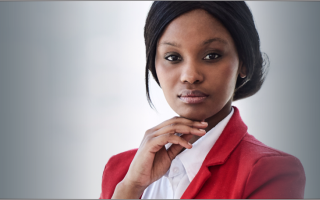
Q&A
WiseUp gives you the answers to your questions
Question: Are there any consequences for naming and shaming someone on social media?
Answer: > It often happens when victims of crimes, such as sexual offences, go onto social media platforms to name and shame the alleged perpetrator. Some might argue that it is in the public interest to do so.
> However, one must remember that there is a balance between a person's right to freedom of expression and the right of another person to have their dignity and good name protected.
> This means that the person who is being named and shamed is entitled to apply for an interdict against the person making the post and to possibly sue the person for defamation.
> There are various factors that must be taken into account and each case will depend on the specific facts of the matter.
Question: Are schools going to implement gender-neutral bathrooms?
Answer: > A gender-neutral bathroom (unisex bathroom) refers to a bathroom that can be used by a person of any gender and orientation.
> A lot of parents might be concerned about the safety of their children (not only physical, but mental wellbeing as well) and specifically parents of girls who feel that it would not be safe to share a bathroom with boys.
> A while back, there was a lot of talk that schools would be forced to have gender-neutral bathrooms for their learners. This was a result of draft guidelines that were released dealing with the socio-educational inclusion of diverse sexual orientation and gender identity in schools.
> Although these draft guidelines do encourage schools to provide gender-neutral bathrooms and changing facilities, they also encourage that the same should be provided in consideration of everyone's rights to safety, dignity and privacy.
> These draft guidelines did not force schools to now only have gender-neutral bathrooms, but its aim was to promote inclusion and avoid bullying in schools.
Question: Does the law protect women in religious marriages?
Answer: > Marriages entered into in terms of religion do not always have full protection under South African law, unless the marriage was also entered into under the Marriage Act, Civil Union Act or Customary Marriage Act.
> However, considering that the Constitution provides that no one may be discriminated against based on sexual orientation, many cases have been heard by courts in South Africa dealing mostly with instances where women in unrecognised religious marriages did not get equal protection.
> This led to limited protection being provided as a result of these cases, such as allowing spouses in certain religious marriages to inherit from their deceased spouse if there was no Will in place.
> Recently, the Constitutional Court held that Muslim marriages are legally recognised and legislation is being updated to make provision for the recognition and protection of Muslim marriages.
> However, the Constitutional Court judgment only applies to Muslim marriages. This means that other religious marriages, such as Hindu marriages, continue to receive only limited protection as provided through case law.
> There is a new piece of legislation in development that, once finalised and in effect, will deal with all types of marriages in South Africa and ensure equal protection.
Did you know… A unisex bathroom refers to a bathroom that can be used by a person of any gender or sexual orientation.